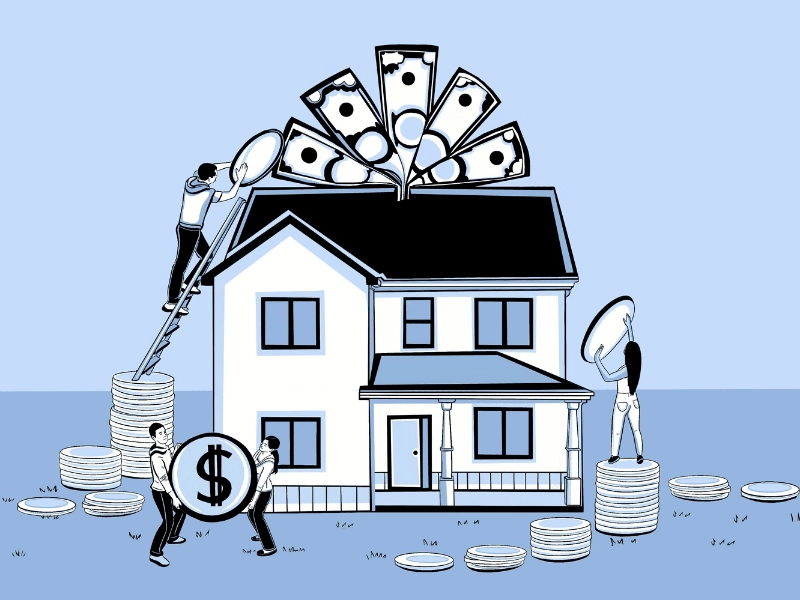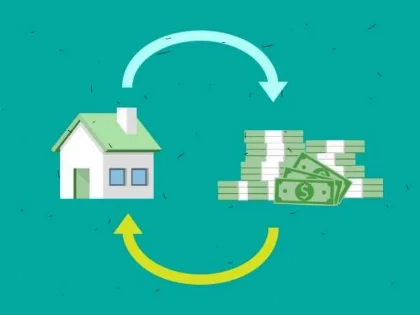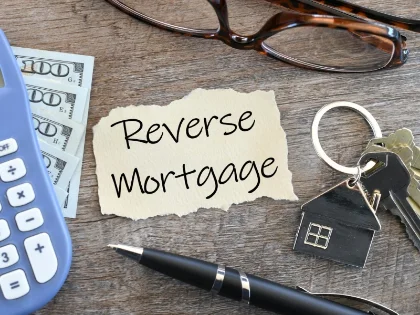Investment Property Mortgages:What To Expect
If an investment property generates sufficient rental income to cover other costs and mortgage loan payments, buying it can be a profitable venture. Nevertheless, it is crucial to do the math before making a purchase. Remember that the interest rates on mortgages for investment houses are typically between 0.50% and 0.75% higher than those for owner-occupied residences. In addition, there are other expenses like property taxes, homeowners insurance, and maintenance.
Rates of interest

Initial Payment
 A 15% minimum down payment is required for conventional investment property mortgages, and your debt-to-income ratio and credit score will play a significant role in setting your loan rate. Although a 680+ credit score and a DTI ratio of 45% or less are preferred by lenders, they also consider your whole financial situation.
Compared to traditional loans, investment properties may have tougher requirements, such as a higher down payment and cash reserve requirement, because they provide a greater risk to lenders. These conditions aid in guaranteeing that a borrower has "skin in the game" and is prepared to abandon the venture should it falter.
Investing in alternatives could be an option for those with poorer credit scores or debt-to-income ratios. These could include hard-money loans, private lending, and jumbo mortgages. These choices usually have higher interest rates, but they can be a beneficial way to build up your real estate investment portfolio or buy your first rental home.
A 15% minimum down payment is required for conventional investment property mortgages, and your debt-to-income ratio and credit score will play a significant role in setting your loan rate. Although a 680+ credit score and a DTI ratio of 45% or less are preferred by lenders, they also consider your whole financial situation.
Compared to traditional loans, investment properties may have tougher requirements, such as a higher down payment and cash reserve requirement, because they provide a greater risk to lenders. These conditions aid in guaranteeing that a borrower has "skin in the game" and is prepared to abandon the venture should it falter.
Investing in alternatives could be an option for those with poorer credit scores or debt-to-income ratios. These could include hard-money loans, private lending, and jumbo mortgages. These choices usually have higher interest rates, but they can be a beneficial way to build up your real estate investment portfolio or buy your first rental home.
Final Expenses
 The expenses that a lender, title firm, and appraiser charge for processing and closing an investment property mortgage are known as closing costs. The amounts differ depending on the services provided and purchase prices, but buyers can often lower them by agreeing to cover all or part of the closing costs.
First-time homebuyers typically only need to put down less than 3% of the total purchase price to qualify for a mortgage; however, those buying numerous houses will probably need to contribute more. They also need to be ready for increasingly stringent guidelines pertaining to income, credit ratings, and other elements.
Certain closing costs related to investment property are deemed tax-deductible by the IRS. It does, however, handle these costs in a different way than other deductible household expenses. Speak with a knowledgeable real estate agent to find out more about how these expenditures are broken down and how much closing costs should cost. They can advise you on how to invest in a house and how to keep closing costs low.
The expenses that a lender, title firm, and appraiser charge for processing and closing an investment property mortgage are known as closing costs. The amounts differ depending on the services provided and purchase prices, but buyers can often lower them by agreeing to cover all or part of the closing costs.
First-time homebuyers typically only need to put down less than 3% of the total purchase price to qualify for a mortgage; however, those buying numerous houses will probably need to contribute more. They also need to be ready for increasingly stringent guidelines pertaining to income, credit ratings, and other elements.
Certain closing costs related to investment property are deemed tax-deductible by the IRS. It does, however, handle these costs in a different way than other deductible household expenses. Speak with a knowledgeable real estate agent to find out more about how these expenditures are broken down and how much closing costs should cost. They can advise you on how to invest in a house and how to keep closing costs low.
Taxes
 As a borrower, you can write off certain property tax expenses and mortgage interest payments on your investment property. This has the potential to make real estate investing very profitable.
If you can locate tenants for your rental buildings and keep them in excellent enough condition to yield income, investing in real estate can result in large gains. Long-term unemployment, however, can be something you want to steer clear of, as it may affect your capacity to make loan principal payments.
Because mortgage regulations and interest rates vary for investment and second-home properties, it's critical to make this distinction. An investment property is one that you plan to rent out for a profit or as a source of passive income, whereas a second home is one that you purchase for your own use and leisure and live in for a portion of the year.
As a borrower, you can write off certain property tax expenses and mortgage interest payments on your investment property. This has the potential to make real estate investing very profitable.
If you can locate tenants for your rental buildings and keep them in excellent enough condition to yield income, investing in real estate can result in large gains. Long-term unemployment, however, can be something you want to steer clear of, as it may affect your capacity to make loan principal payments.
Because mortgage regulations and interest rates vary for investment and second-home properties, it's critical to make this distinction. An investment property is one that you plan to rent out for a profit or as a source of passive income, whereas a second home is one that you purchase for your own use and leisure and live in for a portion of the year.







